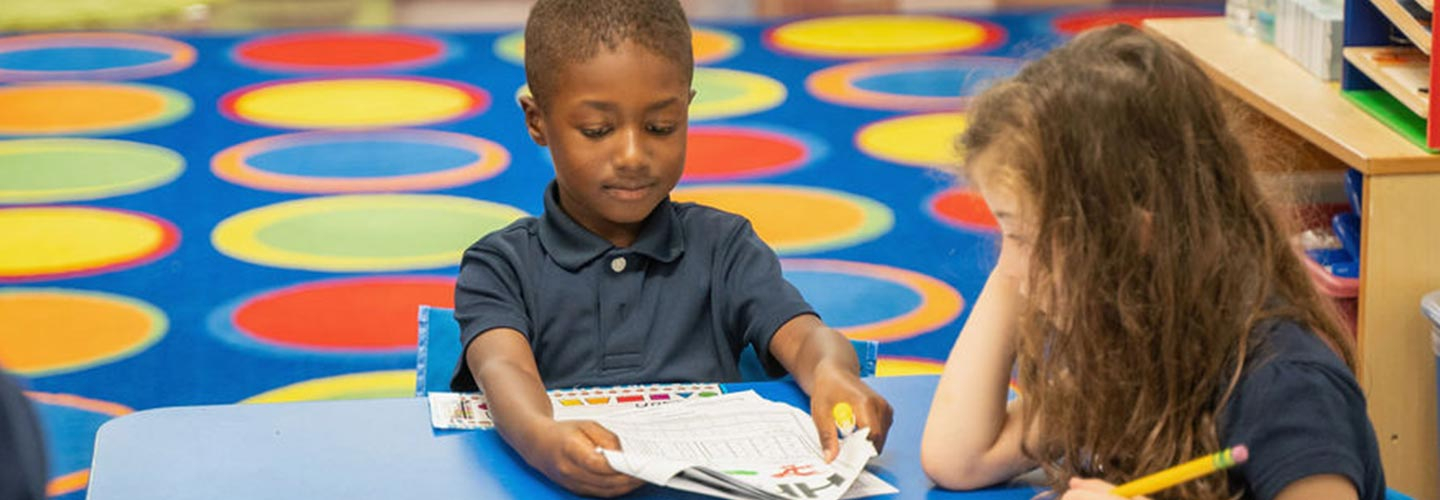
Charter schools are unique public schools that are allowed the freedom to be more innovative while being held accountable for advancing student growth and achievement. Because they are public schools, they:
- are open to all children;
- do not charge tuition; and
- do not have special entrance requirements.
Charter schools were created to help improve our nation’s public school system by offering parents another public school option to better meet their child’s specific needs. At the core of the charter school model is the belief that public schools should be held accountable for student learning. In exchange for this accountability, school leaders should be given freedom to do whatever it takes to help students achieve and should share what works with the broader public school system so that all students benefit. (National Alliance for Public Charter Schools)
All children who are eligible to attend a traditional public school are eligible to attend any charter school, including students with special needs and those who are English Language Learners. Students are admitted to a charter school through a random lottery. However, charter schools typically must give admissions preference in the lottery to children who reside in the school district in which the charter school is located.
Sela’s class sizes varies from 10 to 20. Each classroom has two teachers (an English teacher and Hebrew teacher).
Foreign language skills offer children a lifelong ability to communicate with more people and a window into other cultures. Not only does language learning support academic achievement and provide cognitive benefits to students, it also affects attitudes and beliefs about language learning. Foreign language competency in many cases has shown to lead to overall increased school performance and superior problem-solving skills. Hebrew is a unique language with ancient roots in Near East culture. At the same time, Hebrew is a fascinating case of an ancient language that was revived in modern times, and is today at the heart of a vital and flourishing culture that bridges Europe and Asia, East and West. Hebrew is an entrée to other Semitic languages, including Arabic. Hebrew introduces young children both to the syntax and to a common vocabulary shared by Arabic and other Near Eastern and Asian languages that are in high demand by the U.S. Departments of State, Homeland Security, and Defense, as well as commerce and international development agencies. The Hebrew language has a challenging but not insurmountable level of difficulty for English speakers.
We teach Hebrew in a 50/50 immersion model. Each homeroom (except 5th grade) has a Hebrew teacher and an English teacher. There are dedicated blocks of instruction for both English and Hebrew, and both are taught by 2 teachers. Math is taught by the English and Hebrew teacher together. Hebrew is woven into the rest of the day.
No. Like all other public schools, Sela PCS is completey secular and non-religious. We welcome students families of all religious backgrounds. Diversity by Design is part of our mission.
Hebrew is a distinct language and culture that stands on its own. It is naturally associated with Judaism, but it is not inherently religious – much the same way that Greek is not inherently Greek Orthodox, Arabic is not inherently Muslim, Italian is not inherently Roman Catholic, or English is not inherently Anglican. The best proof of Hebrew’s secular nature is the fact that has long been taught and studied at public schools and colleges across America without raising any First Amendment issues. For example, Hebrew currently is being taught at Stuyvesant High School in Manhattan, Townsend Harris High School in Queens, in middle and high schools in Long Island, at Bellaire High School in Houston, and at several schools in the Chicago area, among others.
We seek to serve all students in the least restrictive learning environment possible. We use an inclusion model for educating our students with special needs to ensure regular interaction among all students. Special education students are served outside of the classroom only when appropriate services cannot be provided in the regular classroom setting. Our teachers and support staff are mindful to ensure a positive learning and emotional environment for all our students and to ensure that every student develops a sense of belonging with fellow students, teachers, and support staff.